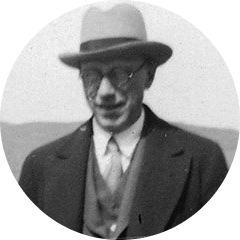Donald Brace
(1881–1955)
Donald Brace (1881–1955), publisher, founded in 1919 – with Alfred Harcourt, whom he befriended at Columbia College, New York (they graduated in 1904) – the firm of Harcourt, Brace & Howe. See The History of Harcourt, Brace and Company: 75 Years of Publishing Excellence (1994); American Authors and Books: 1640 to the Present Day (3rd edn). TSE in The Times, 1955:
The death of the New York publisher Donald Brace will be noted with sincere regret in the world of letters in this country. When, shortly after the First World War, Alfred Harcourt and Donald Brace founded the publishing house which bears their name, the task of establishing relations with British publishers, literary agents, and authors devolved upon the latter. Brace’s acumen brought the firm The Economic Consequences of the Peace, a book which earned them both prestige and profit. By Maynard Keynes, Brace was put in touch with such authors as Virginia Woolf and Lytton Strachey.
No American publisher was better known or better liked in the literary world of my generation. His English friends will remember his keen sense of humour, which, expressed in his very slow and deliberate speech, was at times irresistibly droll. And they will remember most gratefully the confidence which he inspired as a publisher, by his combination of Yankee shrewdness, loyalty to his authors’ interests, and sweetness of temper.
